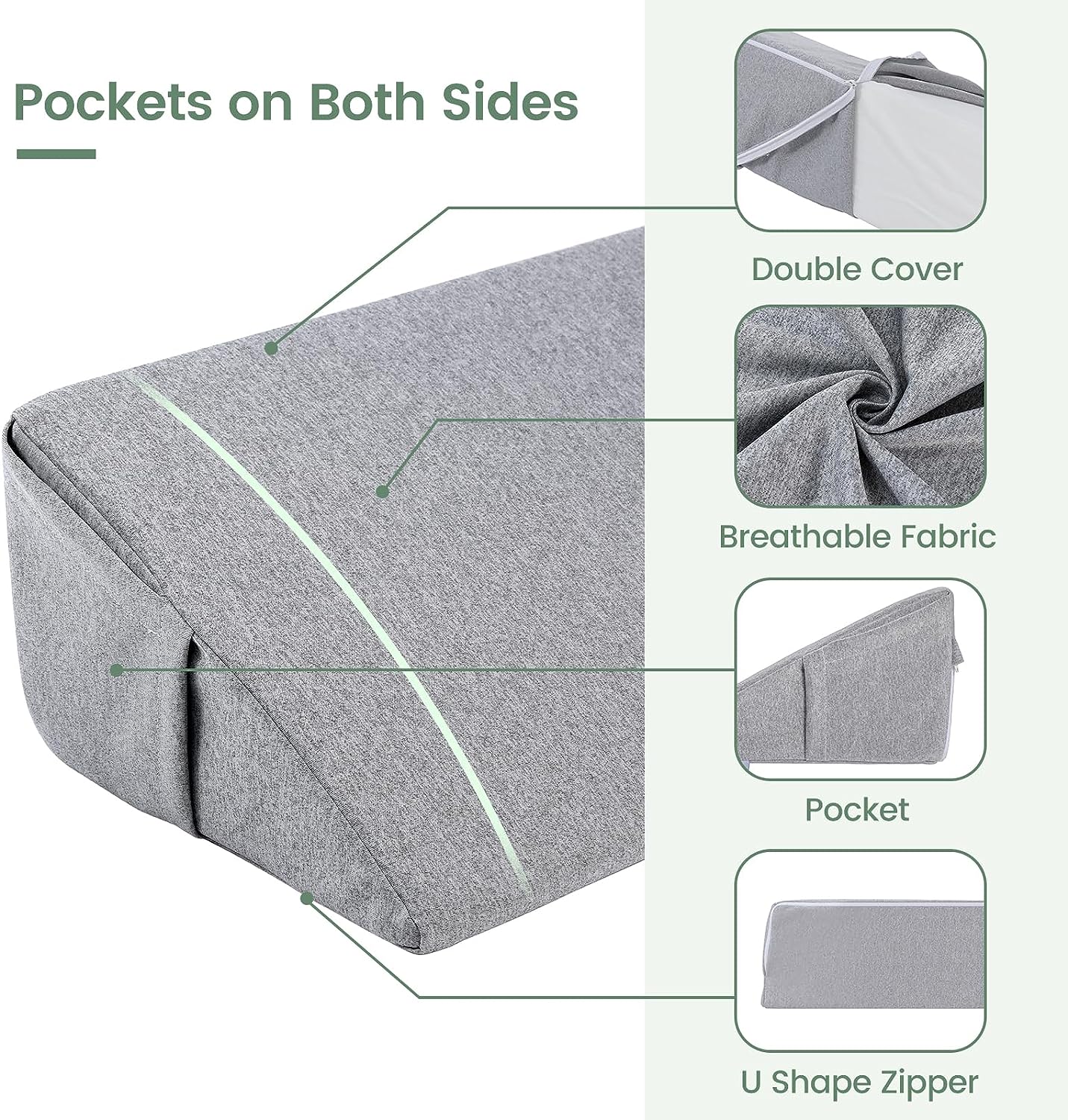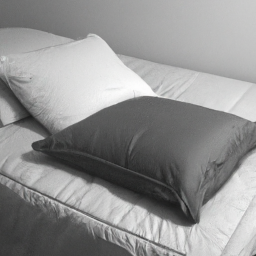Recovering from gallbladder surgery can be a challenging experience. Whether you had your gallbladder removed due to gallstones, inflammation, or other medical conditions, your body needs time to heal and adjust to the changes. During this recovery period, it’s important to take care of yourself and follow your doctor’s instructions to ensure a smooth and successful recovery.
One of the most common concerns after gallbladder surgery is pain. While some pain is normal and expected, it’s important to manage your pain effectively to avoid complications and promote healing. Your doctor may prescribe pain medication or recommend over-the-counter pain relievers to help manage your discomfort. Additionally, you can try using heat or ice packs, practicing relaxation techniques, and getting plenty of rest to help alleviate your pain.
In addition to managing pain, it’s important to pay attention to your diet and activity level during your recovery. You may need to follow a special diet for a few weeks or months after surgery to help your body adjust to the absence of your gallbladder. This may involve avoiding certain foods, such as fatty or fried foods, and eating smaller, more frequent meals. Your doctor may also recommend gradually increasing your activity level as you heal, starting with light exercise and gradually working your way up to more strenuous activities.
Preoperative Preparation
Dietary Restrictions
Before your gallbladder surgery, your doctor may recommend a special diet to help prepare your body for the procedure. You may be asked to follow a low-fat diet for a certain period of time, typically a week or two before the surgery. This can help reduce the amount of fat in your liver and make the surgery safer.
You may also be asked to avoid eating or drinking anything after midnight on the night before your surgery. This is to ensure that your stomach is empty and reduce the risk of complications during the procedure.
Medical Evaluation
Prior to your surgery, your doctor will likely perform a medical evaluation to ensure that you are in good health and that the surgery is safe for you. This may include blood tests, imaging tests, and other diagnostic procedures.
You may also be asked to stop taking certain medications, such as blood thinners, several days before the surgery. Be sure to follow your doctor’s instructions carefully and inform them of any medications or supplements you are taking.
If you have any medical conditions, such as diabetes or high blood pressure, your doctor may work with you to manage these conditions prior to the surgery to reduce the risk of complications.
Surgery Procedure
When you undergo gallbladder surgery, there are several steps involved in the procedure. The surgery is typically performed under general anesthesia, which means you will be asleep during the entire operation. The surgeon will make several small incisions in your abdomen to access the gallbladder. The surgical techniques used may vary depending on the specific case and the surgeon’s preference.
Anesthesia
Before the surgery, you will be given anesthesia to ensure that you are comfortable and pain-free throughout the procedure. General anesthesia is typically used for gallbladder surgery, which means you will be unconscious and unaware of the surgery taking place. Your anesthesiologist will discuss the type of anesthesia that will be used and answer any questions you may have.
Surgical Techniques
There are several surgical techniques that can be used during gallbladder surgery. The most common technique is laparoscopic cholecystectomy, which involves making several small incisions in the abdomen and using a tiny camera and surgical instruments to remove the gallbladder. This technique is minimally invasive and typically results in less pain and a faster recovery time compared to traditional open surgery.
In some cases, open surgery may be necessary. This involves making a larger incision in the abdomen to remove the gallbladder. This technique may be necessary if there are complications or if the gallbladder is too inflamed or infected to remove using laparoscopic surgery.
Your surgeon will discuss the surgical technique that will be used and answer any questions you may have. It is important to follow your surgeon’s instructions before and after the surgery to ensure the best possible outcome.
Postoperative Care
After gallbladder surgery, it is important to take care of yourself during the recovery process. Here are some guidelines to help you manage your postoperative care:
Pain Management
It is normal to experience some pain and discomfort after gallbladder surgery. Your doctor will likely prescribe pain medication to help manage your pain. Be sure to take the medication as directed and report any side effects or concerns to your doctor. You can also try using heat or ice packs to help alleviate pain and discomfort.
Dietary Guidelines
Your doctor will likely recommend a special diet after your surgery to help your body heal. You may need to avoid fatty or spicy foods for a period of time. Gradually reintroduce these foods into your diet as your body adjusts. Be sure to drink plenty of water and eat a balanced diet to support your recovery.
Here are some general dietary guidelines to follow:
- Eat small, frequent meals throughout the day
- Avoid fried or fatty foods
- Avoid spicy foods
- Include plenty of fruits, vegetables, and whole grains in your diet
- Drink plenty of water
Physical Activity
It is important to gradually increase your physical activity after surgery. Start with light activity, such as walking, and gradually increase the intensity and duration of your exercise as you feel comfortable. Avoid heavy lifting or strenuous activity for several weeks after surgery. Be sure to follow your doctor’s recommendations for physical activity.
By following these guidelines for postoperative care, you can help support your body’s healing process and ensure a smooth recovery from gallbladder surgery.
Recovery Time
After gallbladder surgery, your recovery time will vary depending on the type of surgery you had and your overall health. In general, most people can expect to stay in the hospital for 1-2 days after their surgery. During this time, you will be monitored closely to ensure that you are healing properly and that there are no complications.
Once you are discharged from the hospital, you will need to take it easy for a few days. You may experience some pain and discomfort, and it is important to follow your doctor’s instructions for pain management. You should also avoid strenuous activity and heavy lifting for at least 4-6 weeks after your surgery.
In terms of returning to work, most people can expect to take about 1-2 weeks off after their surgery. However, this will depend on the type of work you do and how physically demanding it is. If you have a desk job, you may be able to return to work sooner than if you have a job that requires heavy lifting or physical labor.
It is important to listen to your body during your recovery and to take things slow. If you experience any unusual symptoms, such as fever, severe pain, or excessive bleeding, you should contact your doctor immediately.
Overall, the recovery time after gallbladder surgery can vary, but most people can expect to be back to their normal activities within 4-6 weeks. It is important to follow your doctor’s instructions and to take care of yourself during this time to ensure a smooth recovery.
Potential Complications
While gallbladder surgery is generally safe, there are potential complications that can arise. These can include:
- Bleeding
- Infection
- Bile leak
- Injury to the common bile duct
- Damage to nearby organs, such as the liver or small intestine
- Adverse reaction to anesthesia
If you experience any of the following symptoms after surgery, you should contact your doctor immediately:
While these complications are rare, it is important to be aware of them and to seek medical attention if you experience any concerning symptoms.
- Fever
- Severe abdominal pain
- Yellowing of the skin or eyes
- Excessive bleeding or drainage from the incision site
- Difficulty breathing or chest pain
- Unusual fatigue or weakness
Step 1
Consultation with Your Surgeon: Your surgeon will explain the procedure to you and answer any questions you may have. They will also give you instructions on how to prepare for the surgery, including what to eat and drink, and what medications to avoid.
Step 2
Pre-operative Testing: You may need to undergo several tests before the surgery, including blood tests, an electrocardiogram (ECG), and an ultrasound. These tests will help your surgeon determine if you are healthy enough for surgery.
Step 3
Anesthesia: Before the surgery, you will be given anesthesia to make you sleep and prevent pain. Your anesthesiologist will explain the type of anesthesia you will receive and any possible side effects.
Step 4
Surgery: The surgery typically takes 1-2 hours. Your surgeon will make small incisions in your abdomen and insert a laparoscope and other instruments to remove your gallbladder. After the gallbladder is removed, your surgeon will close the incisions with stitches or staples.
Step 5
Post-operative Recovery: After the surgery, you will be taken to a recovery room where you will be monitored until you wake up from the anesthesia. You may experience some pain and discomfort, which can be managed with medication. Your surgeon will give you instructions on how to care for yourself at home, including how to manage pain, when to remove dressings, and when to resume normal activities.
Dos
- Do follow your doctor’s instructions regarding diet and activity level.
- Do take any prescribed medications as directed
- Do keep the incision area clean and dry
- Do contact your doctor if you experience any unusual symptoms, such as fever, severe pain, or redness around the incision site.
Don’ts
- Don’t lift heavy objects or engage in strenuous activity until your doctor gives you the okay.
- Don’t drive until you are no longer taking pain medication and feel comfortable behind the wheel.
- Don’t eat fatty or greasy foods until your doctor says it’s okay.
- Don’t ignore any signs of infection or complications.
Conclusion and final thoughts 💭
Recovery after gallbladder surgery can be a difficult and painful process, but with proper care and attention, you can make a full recovery and return to your normal activities. It is important to follow your doctor’s instructions carefully and to take any prescribed medications as directed.
During your recovery, it is important to eat a healthy diet and to avoid fatty or greasy foods that can cause digestive problems. You should also drink plenty of water and other fluids to stay hydrated and to help flush out any toxins from your body.
It is normal to experience some pain and discomfort after gallbladder surgery, but if you experience severe pain, fever, or other symptoms, you should contact your doctor immediately. You should also avoid strenuous activities and heavy lifting for several weeks after your surgery to allow your body time to heal.
Overall, recovery after gallbladder surgery can take several weeks or even months, but with patience and care, you can make a full recovery and return to your normal activities. Remember to follow your doctor’s instructions carefully and to take good care of yourself during this time.



